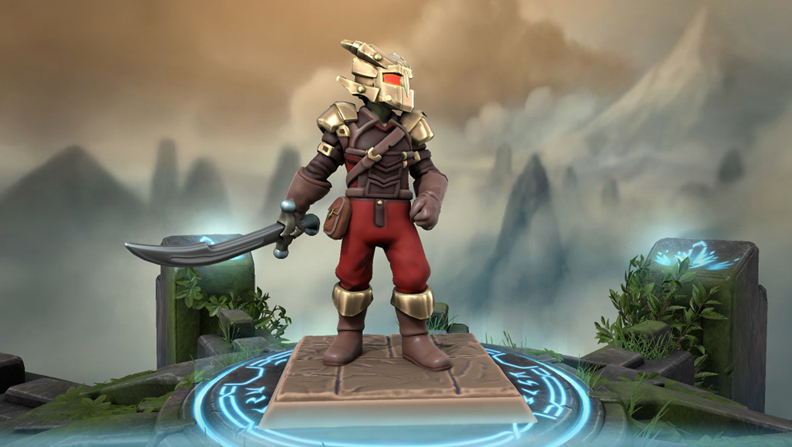
Back in January, we shared a beginner’s guide to Slay the Spire that covered the highlights of this roguelike deckbuilding dungeon crawler where your goal is to build a deck of cards to defeat progressively harder enemies. Read on to go more in-depth about archetypical themes and noteworthy relics to consider when playing as the character, Ironclad.
The Ironclad
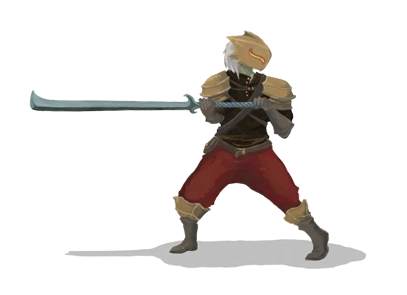
Ironclad is the most straightforward character and is often the first character new players use to ‘beat’ the game. He has cards that deal a lot of damage (Bludgeon, Carnage, and Blood for Blood), cards that block a lot (Flame Barrier, Second Wind, and Impervious), and straightforward scaling (Demon Form, Inflame, and Barricade). Combining these things is often enough to win at the lower difficulties. That said, to push higher difficulties and improve your win rate, you’ll have to get a bit more creative. This article is meant to help with that.
Archetypal Themes
Exhausting
Exhausting is a powerful theme that is used in almost all successful Ironclad decks, as it allows you to strengthen your deck for the next draw. Cards that support Exhausting (shown below) should be highly valued, though you do have to be careful as all of these tend to slow down during your first pass through the deck. It is worth noting that Dark Embrace is often the card that takes an Ironclad deck from fair to overpowered.
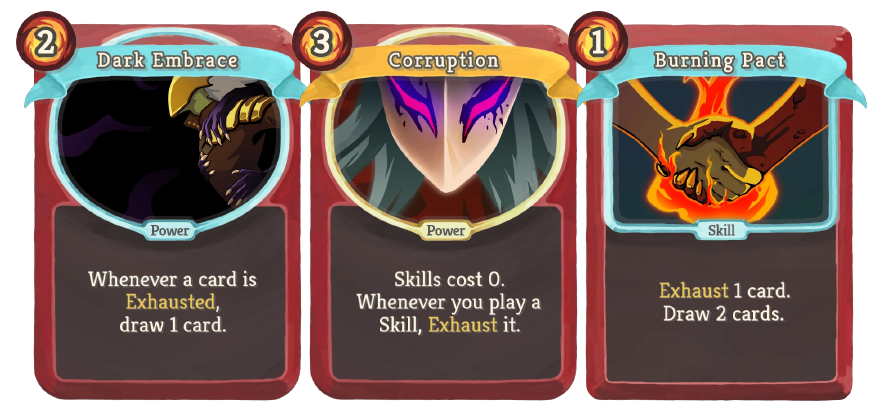
Infinite Combos
Infinite combos allow you to play a large number of cards in a single turn.
Ironclad is the second easiest character to set up an infinite combination with after The Watcher. Ironclad often goes infinite by first reducing their deck size to ~10 or fewer cards. From there, they can draw their deck into hand and proceed to cycle through a few cards that are card and energy neutral.
It is common to Exhaust to reduce deck size, followed by playing cards like Dropkick, Finesse, or Flash of Steel. You can also go near-infinite by making use of Bloodletting, which can produce a ton of energy so long as you have health to spend.
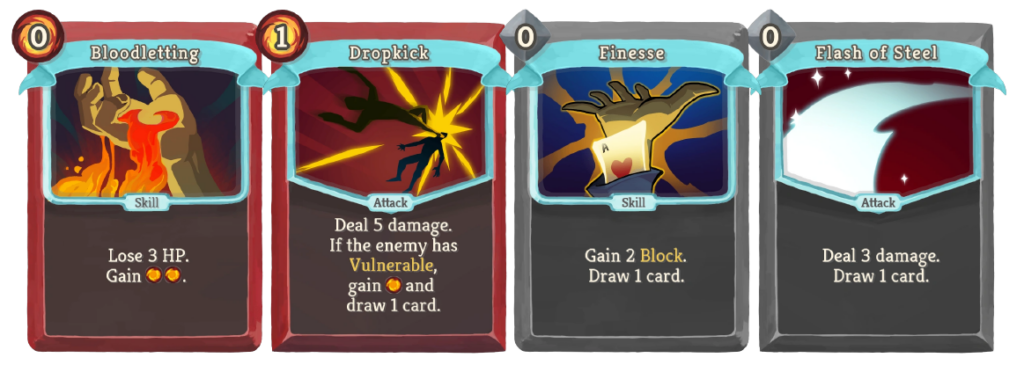
Block scaling
Ironclad can gain immense amounts of Block, though this more or less requires Barricade or Calipers for Block to become a win condition. Power Through followed by Second Wind is a common Block combo and converts Power Through’s ‘drawback’ into a benefit.

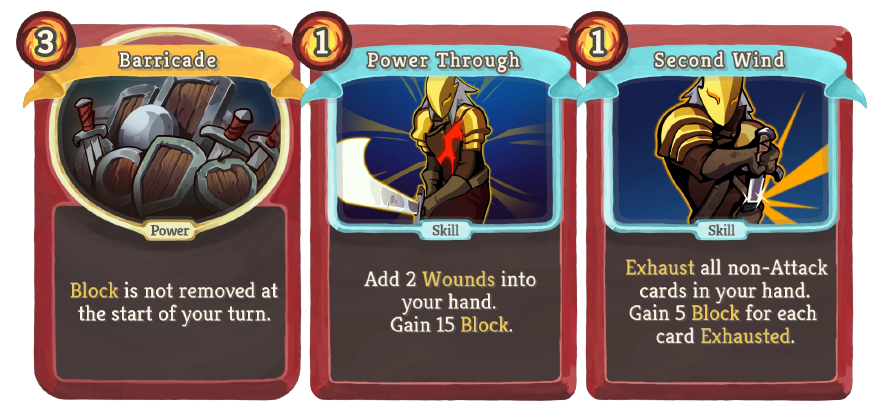
Strength Scaling
Strength scaling is a common win condition at lower ascensions or early acts. It is a fine option but, generally, is slower than alternatives. You often take a lot of damage getting this set up, so Reaper can be important to get you back to full health for the next fight.
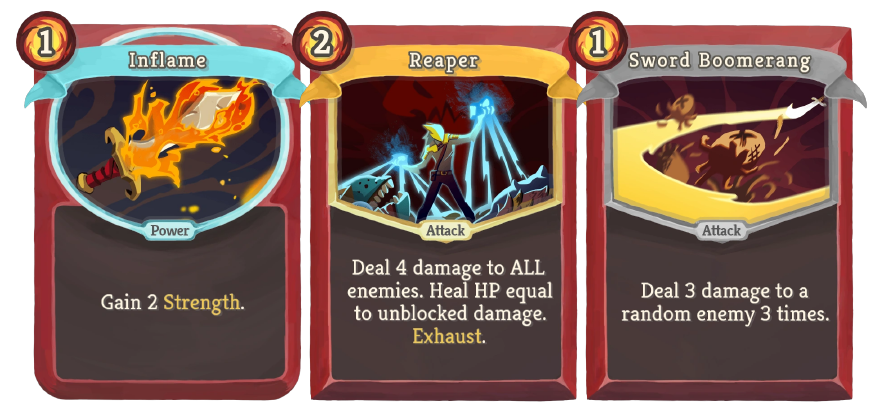
Important Commons
A lot of Ironclad commons are just improvements on your starter cards. While it is prudent to add a few of them, they shouldn’t define your strategy.
These are the commons that do a lot on their own:
When you start a run, you only have 3 energy, but you are drawing 5+ energy worth of cards per turn. So, with each turn you end up discarding resources. 0 cost cards help remedy this imbalance until you can acquire energy generating relics. Furthermore, Anger is a great source of early scaling damage – enough so to singlehandedly solve the Hexaghost boss fight.
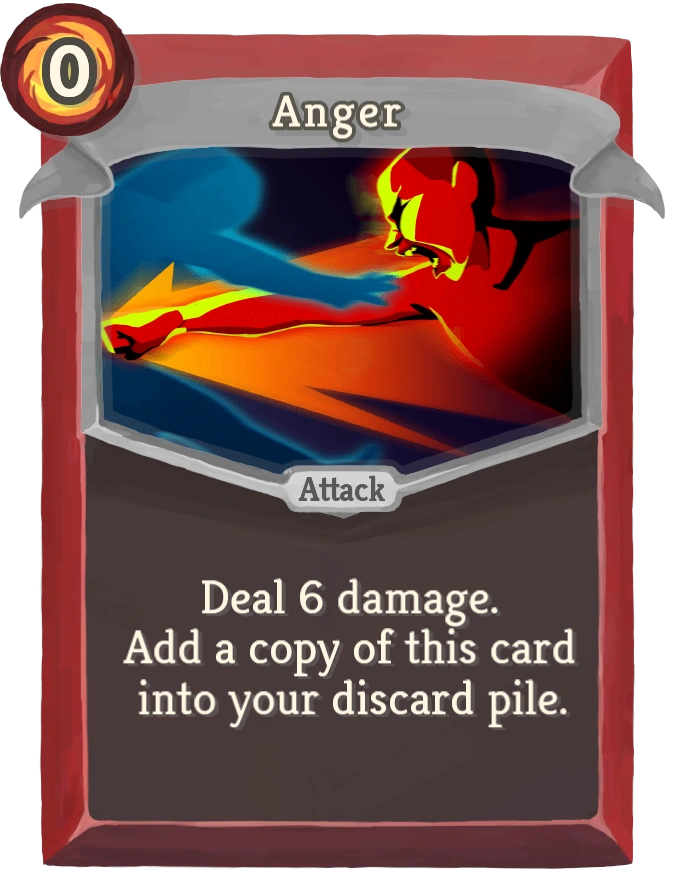
Body Slam – Not the most exciting on floor 1 as it basically requires an upgrade and is quite bad against the Gremlin Nob elite fight. That said, it’s a solid damage card and is the best damage source for a block-centric deck that tries to gain large amounts of block using Barricade or Calipers.
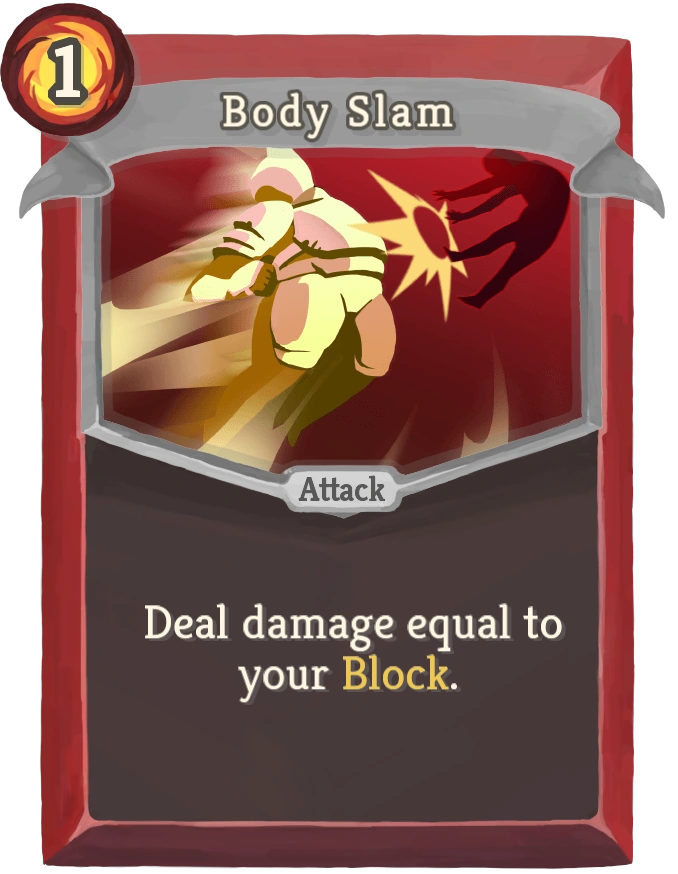
Pommel Strike – While this card may seem unassuming, it’s worth having a copy in case the opportunity to ‘go infinite’ arises. This is because it’s the only card for Ironclad that draws more than one card and doesn’t Exhaust. An important trait for setting up – or performing – an infinite combo.
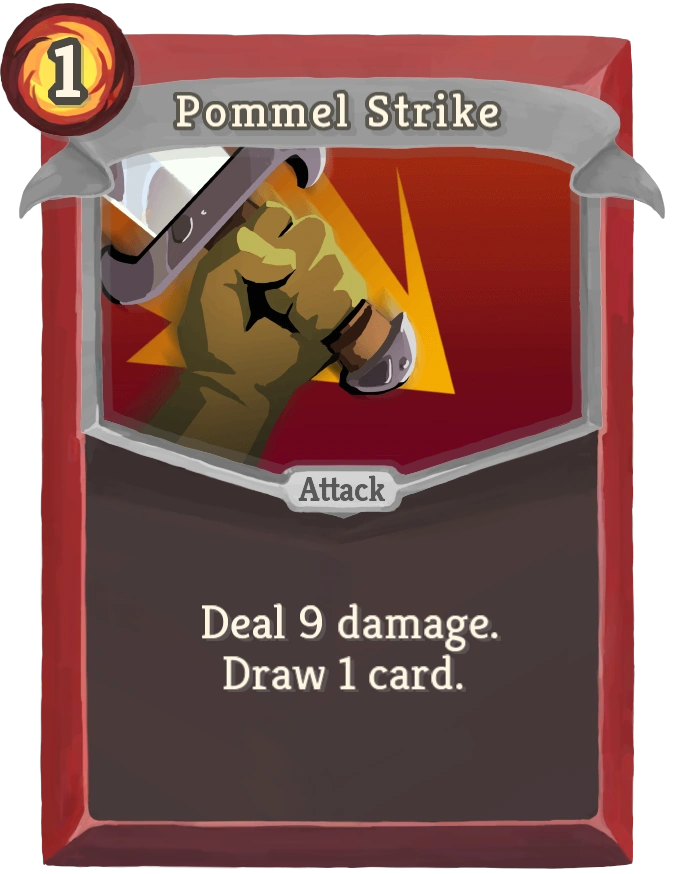
Shrug It Off – The bread-and-butter block card. Hard to have too many of these as they become insanely powerful once you have Corruption in play. Gain 8 block and draw a card for 0 energy? Yes please!
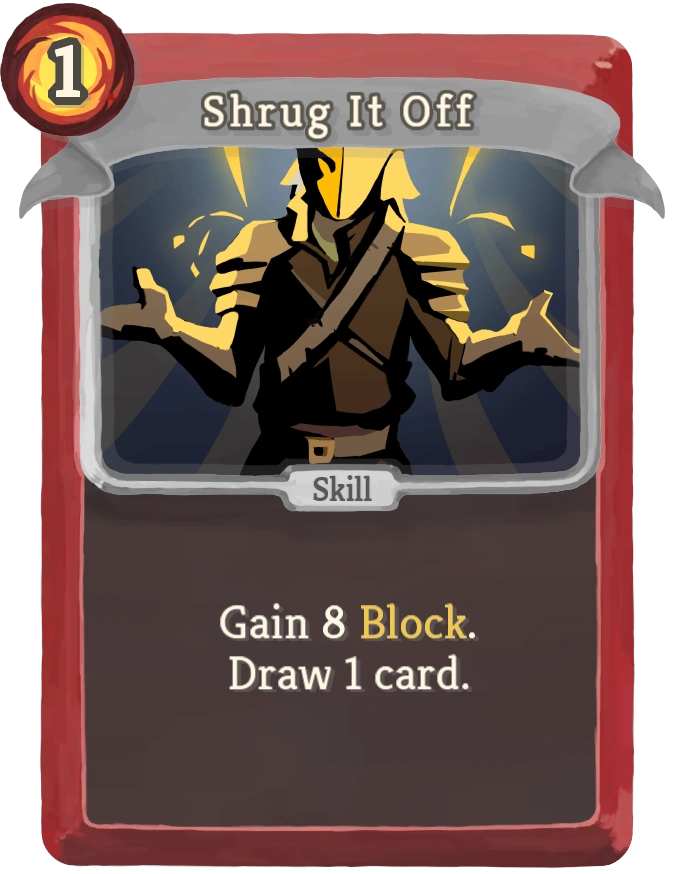
Noteworthy Relics
Sundial – easy to go infinite if you find this relic on Ironclad. The basic idea is to Exhaust down to where you’re able to draw your deck into your hand then alternate playing ‘card-draw’ cards. The most frequent combination is Pommel Strike + Shrug It Off as they are both common.

Calipers – Ironclad has an exponential scaling block in the form of Entrench. This isn’t usually that useful, since block wears off at the end of turn, but Calipers (and Barricade) change that.

Dead Branch – One of a few relics you should hesitate before picking up. If you’re already going infinite, this will likely ruin your deck and may cause you to lose the run. If you’re not, Dead Branch can be an excellent value relic. Drawing a card (even a random one) whenever you Exhaust is a strong effect that gets very overpowered when combined with Corruption.

Pocketwatch – Ironclad has more expensive cards available than the other characters so it’s not that painful to meet the requirement of Pocketwatch. Also, being able to draw 3 extra cards per turn is insane!

Snecko Eye – A scary relic for inexperienced players as you will have some runs that end simply because of bad Snecko luck.
In general, drawing an extra two cards every turn is well worth the ‘downside’ of the Confused debuff. Ironclad is one of the best characters at utilizing the Eye because they have the most expensive card pool. Confused gives each drawn card a uniformly distributed random cost between 0 and 3 (inclusive). Thus, on average, 2 cost cards receive a cost reduction.

Unceasing Top – This relic is mostly useless and baits new players into building decks that won’t function in fights where enemies add Statuses to your deck. That said, Unceasing Top can be used in a pinch with Medical Kit to help you go infinite.

Overall, Slay the Spire is a balanced game, as all cards have a time and place where they could be useful. The most important piece of advice I could give is to be flexible and to adapt to what the Spire offers you.
Happy Slaying!
Ironclad Cards. (n.d.). Slay the Spire Wiki. Retrieved September 25, 2023, from https://slay-the-spire.fandom.com/wiki/Ironclad_Cards
Relics. (n.d.). Slay the Spike Wiki. Retrieved September 25, 2023, from https://slay-the-spire.fandom.com/wiki/Relics
Ironclad. (n.d.). Slay the Spire Wiki. Retrieved September 25, 2023, from https://slay-the-spire.fandom.com/wiki/Ironclad

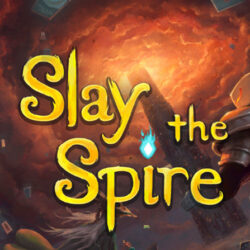
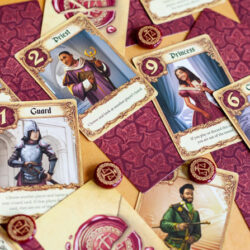
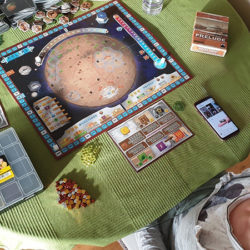
Subscribe Now
Get each new post sent straight to your inbox